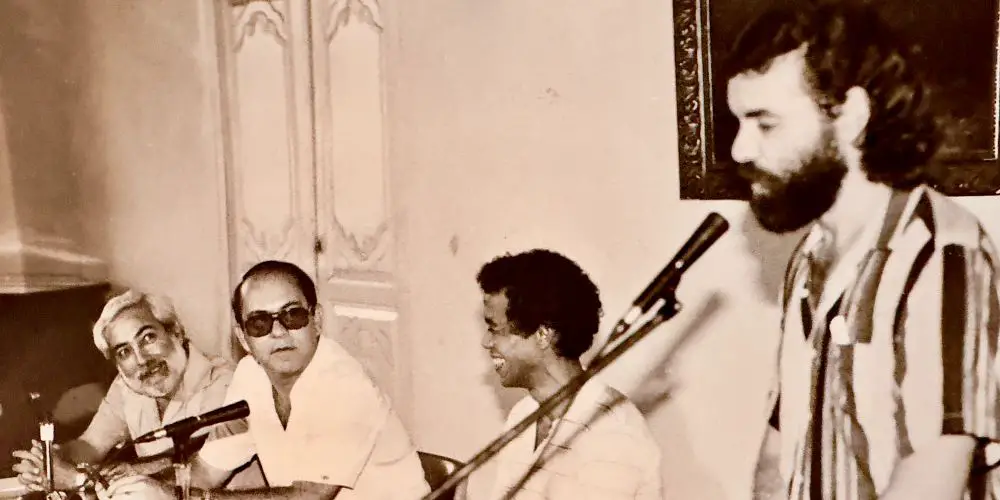MIAMI, United States. – The news cycle that accompanied the death of the writer Eduardo Heras León. In a very short time, after receiving the commendation of the regime, which highlighted his participation as a soldier in the combats at the Bay of Pigs and the Escambray, against the enemies of the Revolution, Luis Rogelio Nogueras, Manuel Cofiño, Roberto Fernández Retamar, Onelio Jorge Cardoso and even Nicolás Guillén himself.
The numerous disciples of Heras León, paradoxically almost all of them exiled, rushed to praise the person he was, making the caveat, however, that they did not share his ideology related to the dictatorship.
Imagine for a moment the sinister department of the political police where the fate of disaffected or collaborative intellectuals and artists is traced.
Thanks to the documentary The Padilla caseby Pavel Giroud, we were able to peek into the modus operandi of the regime to publicly discredit a writer who refused to enter the fold.
No less revealing are the speeches that generally accompany the delivery of the call National Literature Prizein which the defendants have the processed opportunity to recount their disagreements with the dictatorship, when they were unjustly tormented for having written inappropriate books for the “historical moment” or because something in their personal lives did not coincide with the manliness expected of a representative of the national intelligentsia.
Upon being distinguished with the aforementioned award, Eduardo Heras León took a tour of his childhood in poverty, as a shoe shiner, before 1959, and how he later made his way in the world of culture until his punishment stumbled, during the so-called “Quinquenio Gris”, during which he wrote an untimely storybook about his experience in the Army.
Personally, the writer was mortified for five years because he betrayed the principles of the so-called “new man”, a fact that was more serious in his case because he was black, a magnificent artilleryman, chess champion and a scholarship holder in the Soviet Union.
He was the type of intellectual that even General Raúl Castro himself considered paradigmatic. The mistakes of him were viciously reformed.
When he was recovered, he never turned out to be a person of absolute trust like Carlos Martí, Miguel Barnet, Abel Prieto, Omar González, Guillermo Rodríguez Rivera and more recently Víctor Fowler, who earned the affinity of the dictatorship with despicable praise.
He served as deputy director of Literature at the Cuban Book Institute, where I was working at the time, in the late 1980s, and in one of our numerous conversations, where he kept looking over his shoulders in fear, he confessed to me that in those hard years In deep suffering, he was moments away from suicide.
Trying to carry out, with a certain lack of interest, that administrative work, he had written a long story about a young recruit who lived with an older lady, whom he benefited from to advance in his city life, and who later abandoned her for someone younger.
It was like a kind of rebirth of his work and he shared it in the hope of once again being considered a worthwhile writer.
At the beginning of the 90s, when I took the path of exile, I unexpectedly ran into him on the grounds of Miami Dade College; If I remember correctly, he was visiting during a Book Fair.
He greeted me affectionately and I learned of his happiness at having been able to take a photo with Mario Vargas Llosa, which he had to keep safe.
In the final years of his life, the regime created a niche for him so that he would continue to be the quintessential literary mentor of new generations of Cuban writers, in the manner of an emulator like Salvador Redonet.
I imagine him publicly praising the opportunities of the Revolution while letting his hopelessness be known, as he did so many times in our office at the Palacio del Segundo Cabo, when the certainty of not conspiring allowed him to.
OPINION ARTICLE
The opinions expressed in this article are the sole responsibility of the person who issues them and do not necessarily represent the opinion of CubaNet.
















